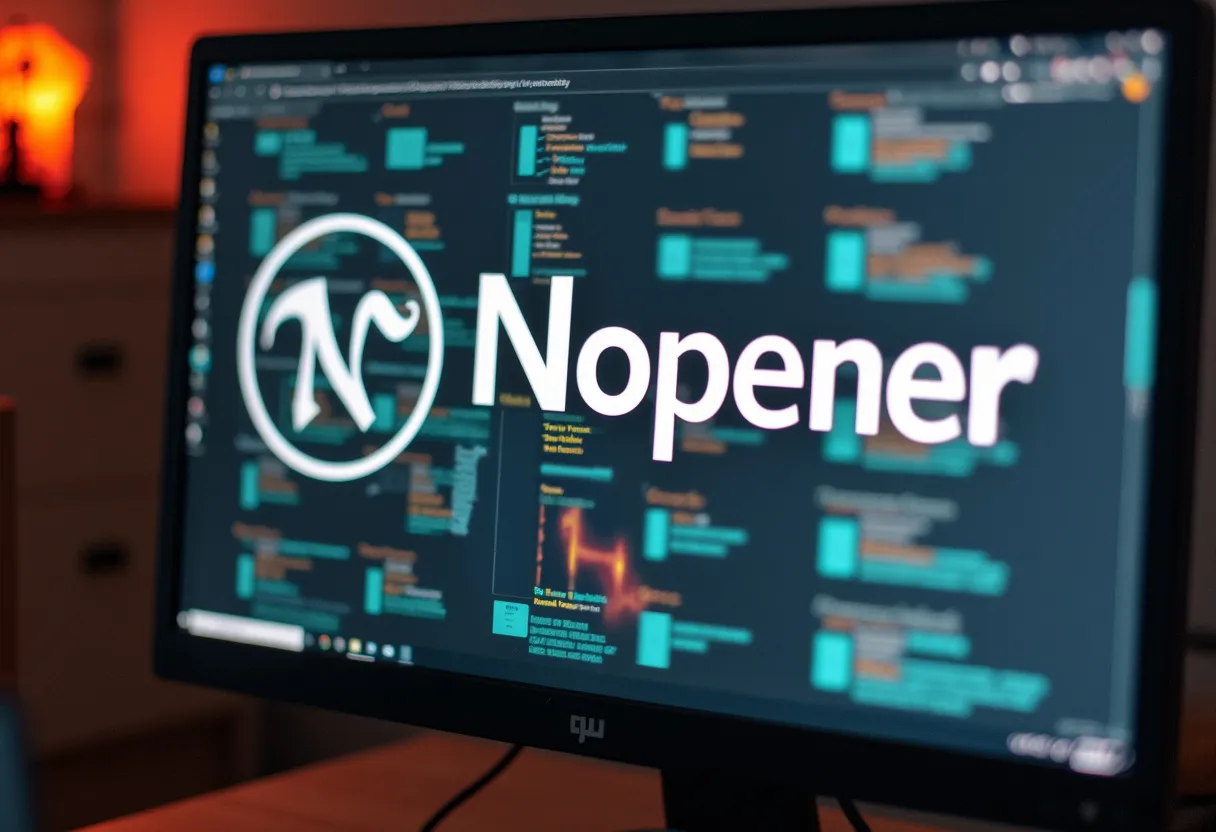Detailed Outline: Understanding the SEO Term “Noopener”
Definition
What is Noopener?
The rel="noopener" attribute is an HTML attribute that prevents a newly opened window from controlling the opening window using the window.opener property. This attribute is used to enhance security by preventing malicious websites from accessing and manipulating the original page that opened the link.
How It Works
Function and Concept:
When a link is opened in a new tab or window using the target="_blank" attribute, the new page can potentially access the window.opener property, allowing it to manipulate the original page. The rel="noopener" attribute prevents this by ensuring the new window does not set the window.opener property, thus returning a null value.
This attribute is particularly important for security, as it prevents phishing attacks such as reverse tab nabbing, where a malicious site could replace the last visited site with a fake lookalike.
Relevance in SEO and Practical Use Cases:
While noopener does not directly impact SEO rankings, it contributes to a safer and more reliable user experience. Ensuring a secure website environment can indirectly benefit SEO efforts by maintaining user trust and reducing potential performance issues caused by malicious scripts.
Why It Matters
Importance in SEO:
Security: The primary importance of noopener is in enhancing the security of your website and protecting users from potential malicious activities. By preventing access to the window.opener property, it safeguards against phishing scams and other security vulnerabilities.
User Experience: A secure browsing experience is crucial for user trust and satisfaction. By preventing malicious scripts from running, noopener helps maintain the performance and integrity of your website.
Impact on Website Performance and User Experience:
Using noopener ensures that the new window cannot access or manipulate the original page, which can prevent performance issues such as slow page loading due to resource-intensive JavaScript processes.
Best Practices
Recommended Methods and Strategies:
Implementation: Always use the rel="noopener" attribute on external links that open in a new tab or window. This is especially important for links to websites you do not fully trust.
Combination with Other Attributes: It is often recommended to use noopener in conjunction with noreferrer to also prevent the browser from sending the HTTP Referrer header to the linked page, further enhancing user privacy.
Tools and Platforms: Many platforms, such as WordPress, automatically add the noopener attribute to external links that open in a new tab. Ensure this feature is enabled to maintain security standards.
Tips for Optimization:
Consistent Use: Consistently apply the noopener attribute to all external links that open in new tabs to maintain a uniform security policy across your website.
Monitoring: Regularly monitor your website’s security and performance to ensure that the implementation of noopener is effective and does not introduce any unintended issues.
Related Terms
Noreferrer: The rel="noreferrer" attribute prevents the browser from sending the HTTP Referrer header when the link is clicked, further enhancing privacy by ensuring the destination site does not know where the traffic originated from.
Nofollow: The rel="nofollow" attribute is used to signal search engines not to follow a particular link, thereby preventing it from passing link juice or SEO influence to the linked page.
Noindex Tag: The noindex tag instructs search engines not to index a certain page, which ensures that the page does not appear in search engine results.
Content Security Policy (CSP): CSP is a security standard that helps protect your site from content injection attacks, including XSS (Cross-Site Scripting). It defines which content sources are trusted and can be loaded on your site.
Anchor Text: The visible, clickable text in a hyperlink. Anchor text should be relevant to the page you’re linking to and can influence search engine rankings.
Link Juice: A colloquial term referring to the SEO value or authority a hyperlink passes from one site to another. Links from high-authority sites typically pass more link juice.
External Link: A hyperlink that points to a domain other than the one on which the link exists. External links can drive traffic to other websites and signal to search engines which sites you consider authoritative.
Internal Link: A hyperlink that points to a page within the same domain. Internal linking helps with site navigation, user experience, and SEO by distributing page authority and ranking power throughout the site.
Outbound Link: A link from your website to an external site. These links can provide value to users by directing them to additional relevant information.
Crawlability: The ease with which search engines can access and index pages on your website. Factors influencing crawlability include site structure, internal linking, and the presence of a sitemap.
Conclusion
The rel="noopener" attribute plays a crucial role in enhancing website security and maintaining a positive user experience. While it doesn’t directly impact SEO rankings, it helps create a safer and more reliable web environment, which can indirectly boost SEO efforts. Consistently using this attribute, along with related attributes like noreferrer, can protect against malicious activities and safeguard user privacy. Implementing noopener and monitoring its effectiveness should be a part of your overall SEO and web security strategy.



